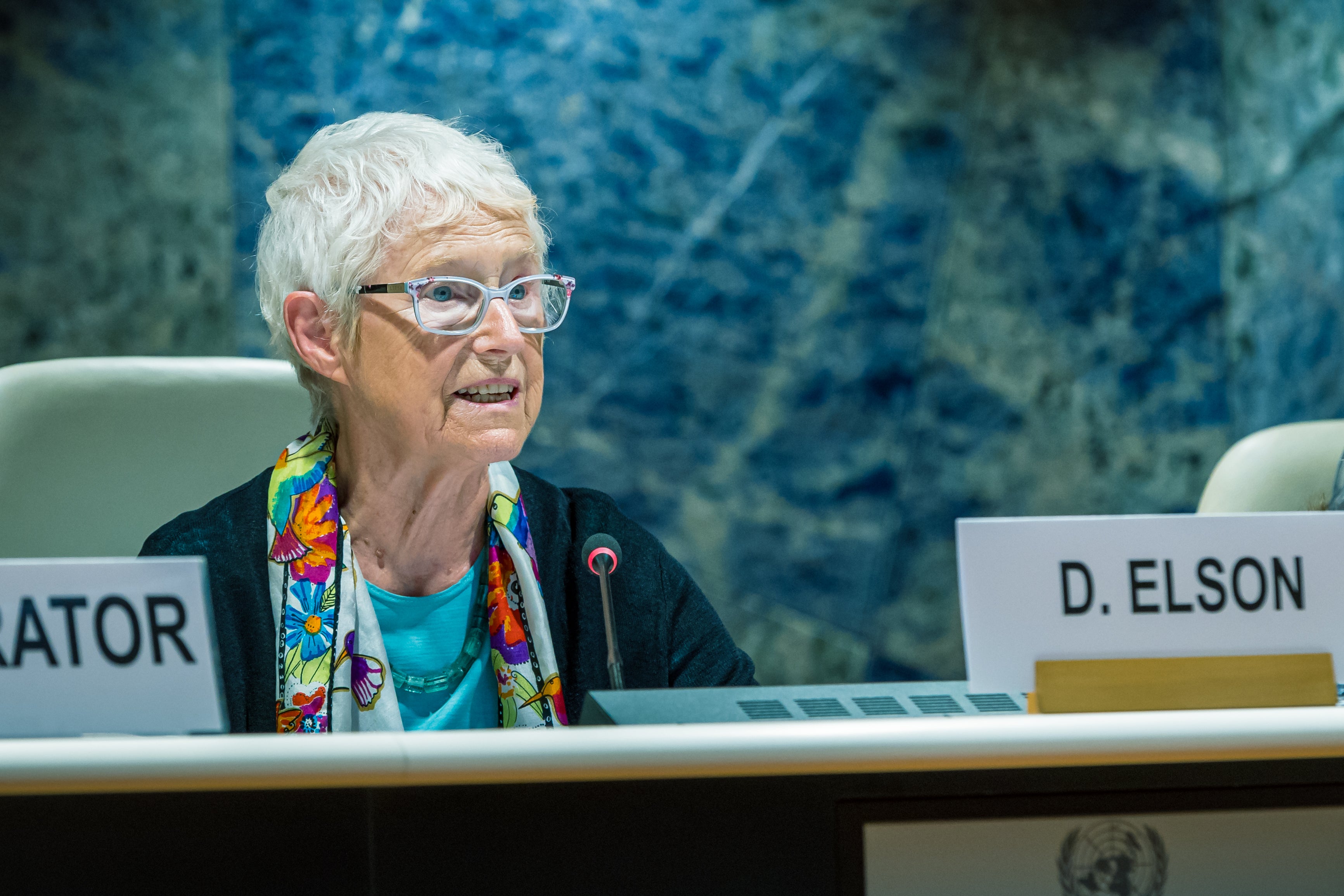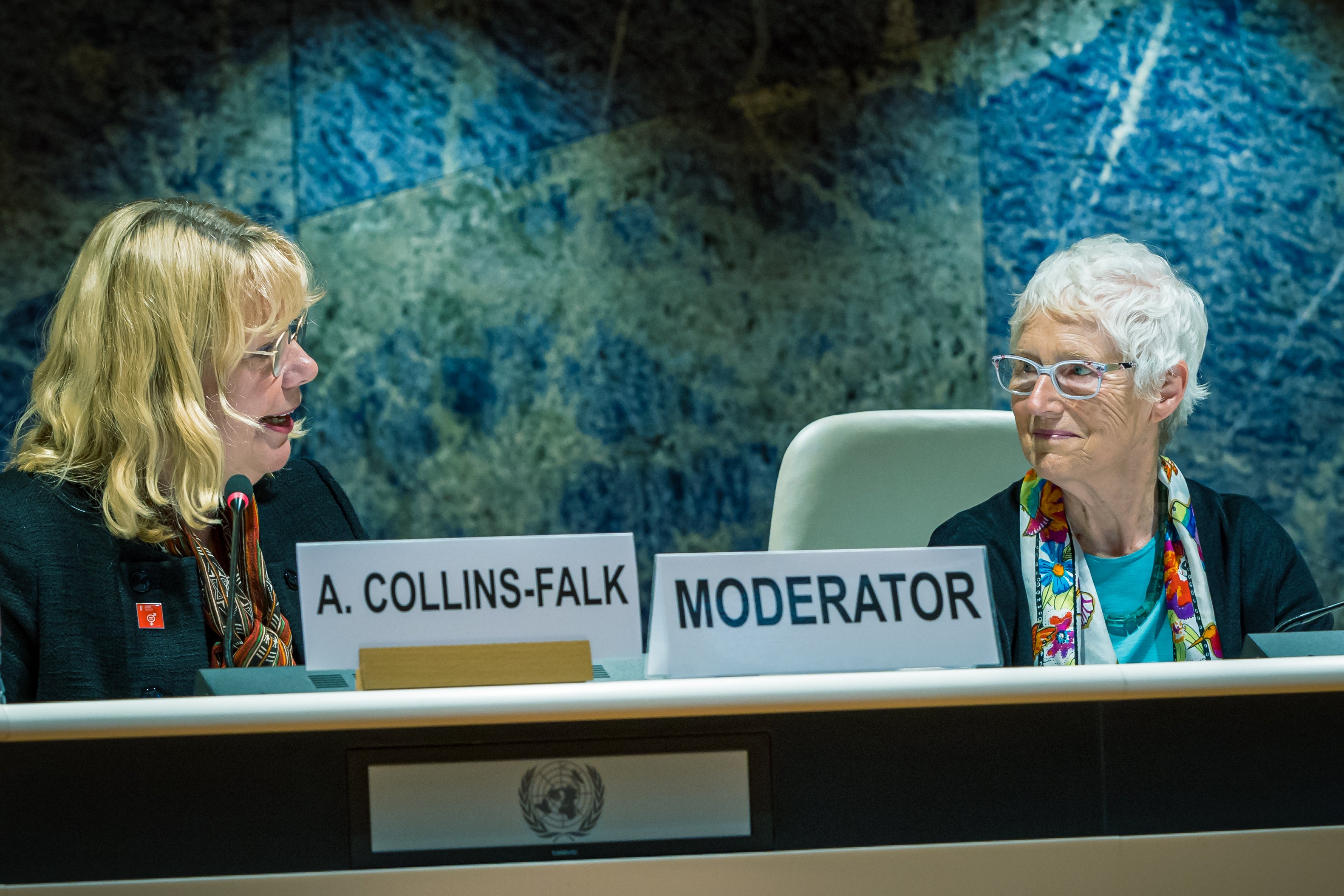In the words of: “We need to ensure that the fiscal space we create is used effectively to address gender inequality and improve the well-being of women”
Date:

Ms. Diane Elson is an Emeritus Professor of Sociology at the University of Essex, England, and a Visiting Professor at the WiSE Centre for Economic Justice at Glasgow Caledonian University, Scotland. She served as Chair of the UK Women’s Budget Group from 2010 to 2016 and continues to be an active member of its Policy Advisory Group. A prolific author on gender equality, human rights, and economic justice Professor Elson spoke on October 21-22, 2024, at the Beijing+30 Regional Review Meeting, titled “Reviewing 30 Years of Beijing Commitments to Accelerate Gender Equality in the UNECE Region.” She discussed how countries can reform tax policies to raise revenue equitably, address the disproportionate impact of regressive taxes on women – particularly those living in poverty – and explore global tax architectures that expand fiscal space. Professor Elson also emphasized the importance of mainstreaming gender equality and human rights principles in fiscal policy.
“Since the Beijing Platform for Action was adopted, wealth and income inequalities have grown much faster than inequalities in earnings, and men hold significantly more wealth than women. This makes fair taxation on wealth and income from wealth a gender-equitable measure.
Currently, however, income from wealth – like interest, dividends, and capital gains (profit from selling an asset for more than its purchase price) – is often taxed at lower rates than income from work due to various exemptions and lower rates. These rates should be equalized.
To illustrate, in the UK, the tax rate on capital gains is 10% for basic-rate taxpayers and 20% for higher-rate taxpayers, whereas income from work is taxed at 20% and 40%, respectively - double the tax rate on capital gains. Equalizing these rates could generate an estimated £16.7 billion (around $21 billion) annually, which would greatly help fund needed improvements in public services.
Most countries don’t tax wealth itself - accumulated assets - even though the wealthiest, mostly men, have seen their wealth soar over the past 30 years. Some countries, however, are now introducing wealth taxes.
Spain, for example, introduced a progressive solidarity tax in late 2022 on the wealthiest 0.5% of people, with tax rates rising with the level of wealth. A study estimated that, if this type of wealth tax (between 1.7% and 3.5%) was applied in 172 countries to the wealthiest 0.5%, it could increase tax revenues by an average of 7.3%, adding more than $2.2 trillion globally – a substantial amount.

International cooperation is essential for implementing wealth taxes effectively. With this in mind, Brazil proposed a coordinated global minimum tax on billionaires at the G20 finance ministers’ meeting in July 2024.
So far, I’ve focused on taxes for individuals, but fairer taxation of wealthy corporations is also crucial. The Independent Commission for the Reform of International Corporate Taxation has recommended a minimum rate of 25% - the current global median corporate tax rate. This could yield an additional $500 billion annually.
Tax allowances and loopholes also drain billions in potential revenue. To tackle this effectively, we need international agreement. A UN Global Tax Convention, currently under discussion, aims to close these gaps. Although 110 Member States have backed this effort, eight countries voted against it, including a few from our region. We should encourage all our governments to support the convention’s development, adoption, and implementation.
Alongside international initiatives, country-level assessments are vital to determine the extra revenue that a fairer, more progressive tax system could generate, given each country’s unique tax system. In the UK, for example, the Women’s Budget Group has developed such an assessment. Governments and NGOs should cooperate to produce these assessments globally to demonstrate that adequate funds for gender equality exist but are simply not being mobilized.
Raising more revenue increases our fiscal space. But what do we do with it? How do we ensure it is spent to advance women's well-being, especially for women living in poverty, and to reduce gender inequality?
Gender-responsive budgeting is key. But we must avoid limiting this approach to tracking allocations in public finance systems alone. True gender budgeting links money with policy, outcomes, and impacts. We need to identify priority investments in public services, infrastructure, and social protection to improve women’s lives.
Each country has its own priorities: care, reproductive health services, services related to violence against women, STEM training for women, accessible public transport, and effective social protection for low-income women. We should estimate the costs of these investments, considering both economic and well-being gains in the short and long term. Tools like those developed by the ILO and UN Women, for example, help estimate the costs and the benefits of care economy investments.
This underscores the need to engage in the budget preparation processes to ensure that additional revenue is allocated toward these critical priorities.
We must also recognize that resources spent outside of public services, infrastructure, and social protection come at an opportunity cost. Every dollar spent on arms and military instead of on social services, infrastructure, and social protection, limits our ability to support these essential needs. Ending wars and conflicts in our region would be crucial in freeing up resources and using our fiscal space effectively to address gender inequality and improve the well-being of women.”
The views expressed in this interview are those of the authors and do not necessarily represent the views of UN Women, the United Nations or any of its affiliated organizations